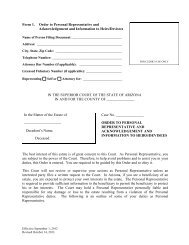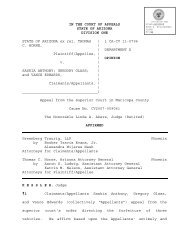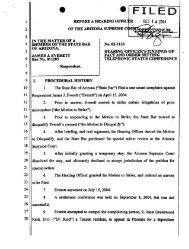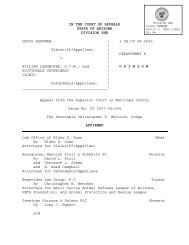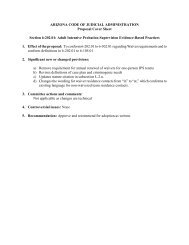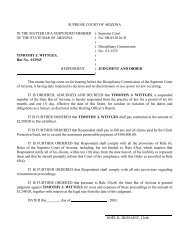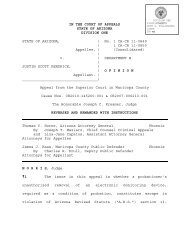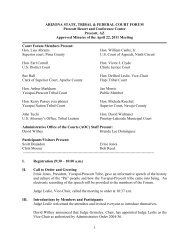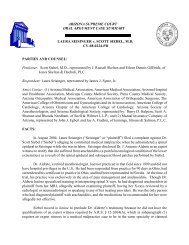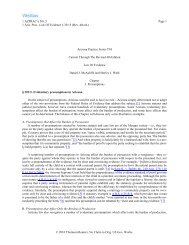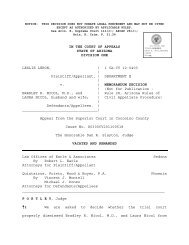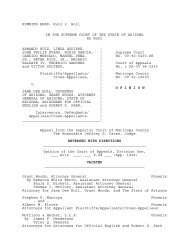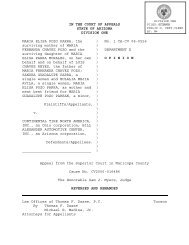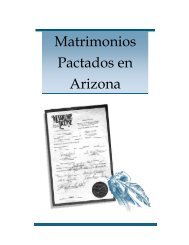State v. Rodriguez - Arizona Judicial Branch
State v. Rodriguez - Arizona Judicial Branch
State v. Rodriguez - Arizona Judicial Branch
You also want an ePaper? Increase the reach of your titles
YUMPU automatically turns print PDFs into web optimized ePapers that Google loves.
the jury must acquit a defendant if the alibi evidence raises a<br />
reasonable doubt about whether the defendant committed the crime.<br />
Id. The alibi instruction therefore redresses the fundamental risk<br />
that the jury may interpret the defendant’s failure to prove his<br />
alibi as proof of guilt. Moreover, standard instructions about the<br />
burden of proof provide a poor substitute for a properly supported<br />
alibi instruction. When the court does not expressly instruct the<br />
jury on alibi, jurors may incorrectly assume that the defendant<br />
bears the burden of proving his alibi. Absent an alibi<br />
instruction, then, the jury may be mistaken about this crucial<br />
point. Accord Duckett, 752 P.2d at 754.<br />
26 In this case, defendant requested an instruction on alibi<br />
based on evidence that reasonably supported an inference that the<br />
killing occurred during the time that defendant was either at work<br />
or at home. Because the standard burden of proof instructions do<br />
not redress the risk of burden shifting engendered by alibi<br />
evidence, the trial court erred when it refused to give an alibi<br />
instruction.<br />
C.<br />
27 The trial court's failure to give an alibi instruction<br />
does not mandate reversal. Rather, we apply a harmless error<br />
analysis when the trial court gives incorrect instructions. See<br />
<strong>State</strong> v. Amaya-Ruiz, 166 Ariz. 152, 173, 800 P.2d 1260, 1281<br />
(1990); <strong>State</strong> v. Hunter, 136 Ariz. 45, 51, 664 P.2d 195, 201<br />
12



